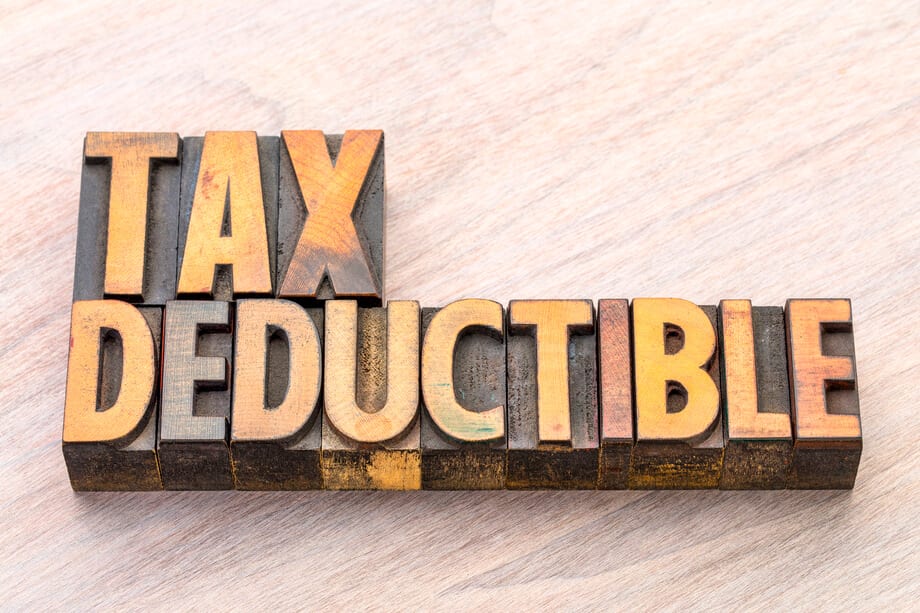Doctors’ Tax Planning means understand your tax deductions and strategies. Doctors don’t always like it when we ask them to think like entrepreneurs. However, most of today’s successful doctors also must learn to think success as business people. We meet a lot of inspired and talented young doctors who do not really know where to begin with their business planning. And we usually meet them at an anxiety-ridden time: Tax time.
We dedicate this blog to those physicians and all medical professionals. They are our heroes and we acknowledge them with gratitude. And when we meet with them, often at tax time, we advise them to learn our golden formula for fiscal health. Thus, before we start listing favorite tax deductions, we suggest you read our golden formula:
Gavrilov’s Golden Formula for Doctors Tax Planning Deductions or Keeping Doctors Financially Healthy

We first mentioned this golden formula for financial health over a year ago in this blog. This was also an article specifically for doctors. (It works for other higher income level professionals also, by the way.)
We don’t deny that this golden formula has been around for generations. We don’t pretend it is original. It has existed for so long, Gavrilov & Co does not know to whom to give the creative credit. And it comes in three steps:
1. First and foremost: spend less than you earn. (We know more professionals other than doctors who have trouble with this one.) Did you know, doctor, that if you live rich, it means you’ll be poor? Just think about it in terms of your life-style and personal debt.
2. Secondly, and very basically: save and invest the difference.
3. Thirdly, and this is the most difficult step: Continue to do it for a long period of time.
For more about this formula, we advise doctors to read the book, the White Coat Investor.
Doctors Tax Planning: Relieves Nerves at Tax Deadlines
Tax time can be an anxiety-ridden time for doctors. We know they worked hard for that income and they seek to pay as little income tax as possible. Of course that is important. But seeking ways to pay less tax makes doctors easy prey to risky tax shelter investments.
As Mathew Kelley says, doctors have to be careful and you must “… make sure you’re not falling victim to potentially risky schemes marketed as “tax shelters” in your search for available tax credits and deductions.”
Doctor, Know Thy Legitimate Self-Employed Deductions
To relieve the anxieties of many medical professionals, let’s take a look at the basics of legitimate tax deductions. And, doctor, we hope tips like these help you plan next year’s taxes more easily. Start your tax planning now. Then, ultimately tax-time will not trigger any anxiety at all.
Doctors and Their Business Deductions

To take these deductions, you must be self-employed as a physician. Some doctors don’t understand that this category also includes you if you are a partner in a practice. Likewise, examine these deductions if you are an independent contractor. If you haven’t been keeping scrupulous records, begin now. We want you to have the back-up documentation to make the best of every deduction. And remember doctor, small things sometimes add up to big amounts of money in the long run.
Doctors Tax Planning: Little Deductible Things in a Doctor’s Life Mean A Lot
Watch out for those professional fees, like Medical and DEA licenses, Board examination fees, and CME expenses.
- Collect your receipts for cell phone and pager expenses.
- Yes, of course, you can deduct your home office expenses, even though you have an office at work.
- Likewise, Keep your receipts on medical clothing, including scrubs, white coats, and do not forget those work shoes.
- Note all medical work-related travel expenses, including meals, accommodations and travel itself.
Last but not least, count up all your mileage and business-related automobile expenses (We do not mean those expenses related to commuting)
Doctors Tax Planning: Check Out The Bigger Deductions
Now, let’s view a list of some of the bigger expenses that you might deduct:
Naturally, you’ll take deductions for office equipment and supplies. Likewise plan your purchases of medical equipment so that you get the best tax benefits. (See us about tax planning 5-10 years into the future, to make this really work for you.)
Did you know you could take deductions on patient refunds? And in that vein, don’t forget to deduct that Malpractice insurance.
Payroll Taxes are a Special Beast

Self-employed physicians actually must pay both the “employer” and “employee” portion of self-employment taxes. However, “the employer portion can generally be deducted too.”
Physicians: Beware if You Are a W-2 Employee
What if you are a W-2 employee instead of being self-employed? “There is a 2% floor for unreimbursed work expenses.” So one idea we often tell doctors is that you might consider a side business in addition to your medical career. Thus, you could lower your taxable income through the deductions you could claim in that business.
Doctors: How Healthy are Your Retirement Accounts?
Now we come to one of our favorite deduction situations. Gavrilov believes that one of the finest ways for physicians to shrink their tax bill is to engage in retirement planning through tax-deferred retirement vehicles.
Doctors Tax Planning: Here’s a Prescription for a Great Deduction
In fact, we are amazed that so many physicians simply ignore this legitimate opportunity. As many experts say, “When you set aside money in a tax-deferred account, you’re reducing the amount of your taxable income, dollar for dollar. And, the opportunity for savings is significant.”
- Self-employed physicians can actually put as much as 25% up to $54,000…
- It goes into a SEP-IRA or 401(k) this year. Plus you can add your own individual salary deferrals up to $18,000.
- If doctors are 50 years of age or older, they can make “catch-up” contributions of an additional $6,000.
For W-2 Doctors: A Smaller Opportunity
Sadly, the W-2 employees don’t have as large of an opportunity. However “they can still set aside up to $18,000 this year in an employer-sponsored 401(k) plan, plus “catch-up” contributions for those over age 50.” If you are thinking about after-tax vehicles, remember: “Roth IRAs won’t give you any tax savings this year. However, it’s worth exploring whether setting aside money for future tax savings makes sense for your personal situation.” It is an option for your tax planning goals.
A Deduction You Might not Want, But Need: Investment Tax Loss Harvesting
As you can tell from our Gavrilov Golden formula, we encourage doctors to live with limits, and not spend what they make. That being said, we also encourage physicians to save and invest the money beyond your expenses and reasonable luxuries. And we hope you invest wisely in order to make more money.
But if your investment depreciates, did you know the IRS allows you to deduct up to $3,000 in capital losses? This is termed “Investment Tax Loss Harvesting.” Hopefully, it offsets the capital gains which the IRS would have gladly taxed!

What’s more, if your losses are more than $3,000, you might be able to use them as a carry-over. In Physician on FIRE, we see an example from a doctor who is also a financial genius.“… the excess losses can be carried over to subsequent years. In 2016, a year in which the market actually saw a double-digit gain, I tallied over $50,000 in losses early in the year, giving me over 15 years worth of $3,000 deductions from 2016 alone.”
Doctors Tax Planning: Quick Takeaway—For Now
Needless to say, we have not yet covered all the tax deductions physicians can use to reduce their tax bill. However, you won’t want to miss our next blog for medical professionals when we expand the list in Part II of this topic. (And yes, we’ll be telling you about those charitable deductions in addition to several more “biggies.”)

